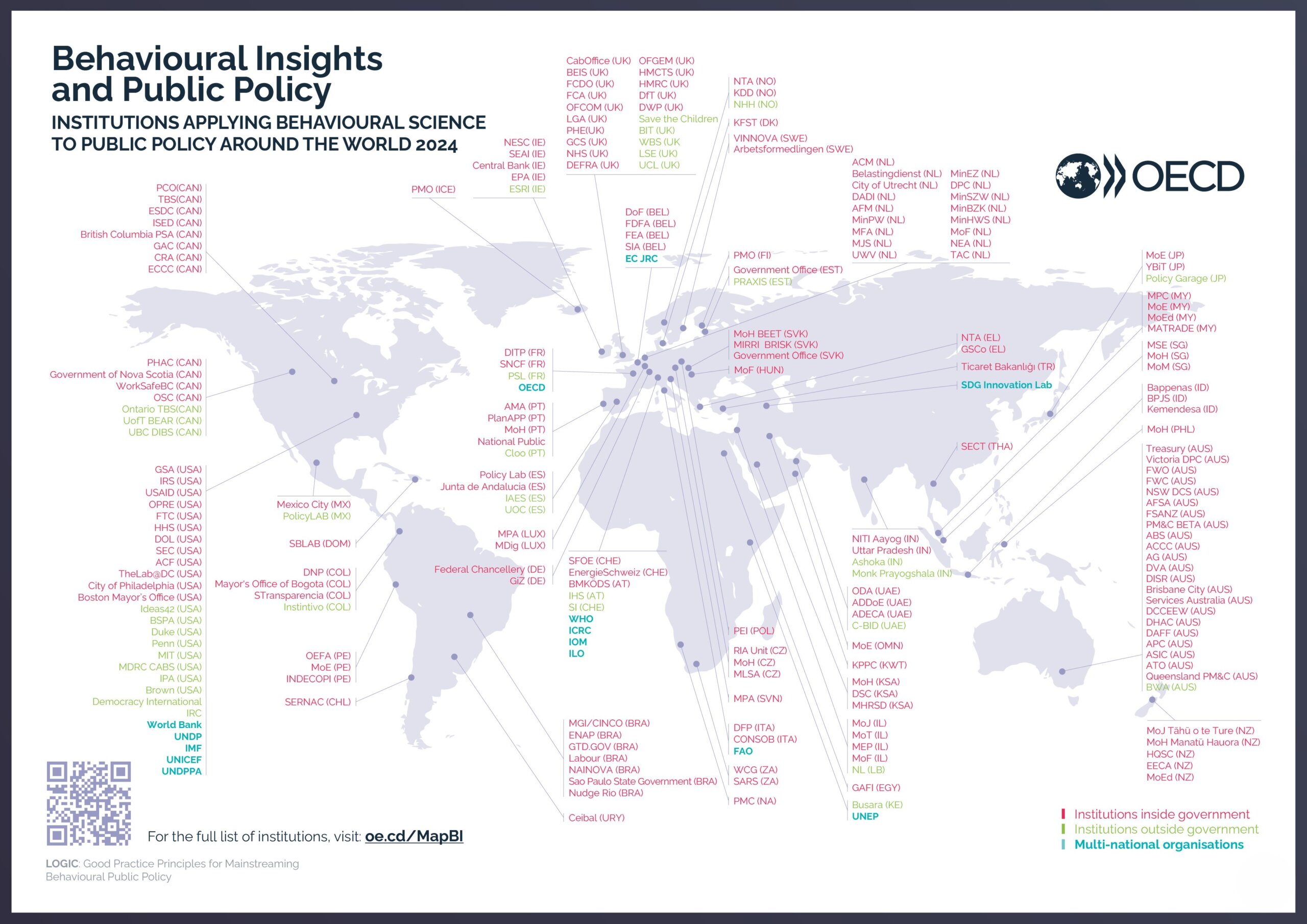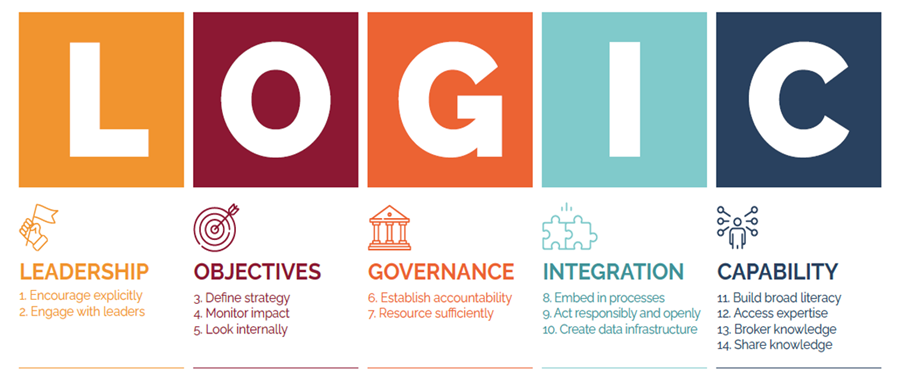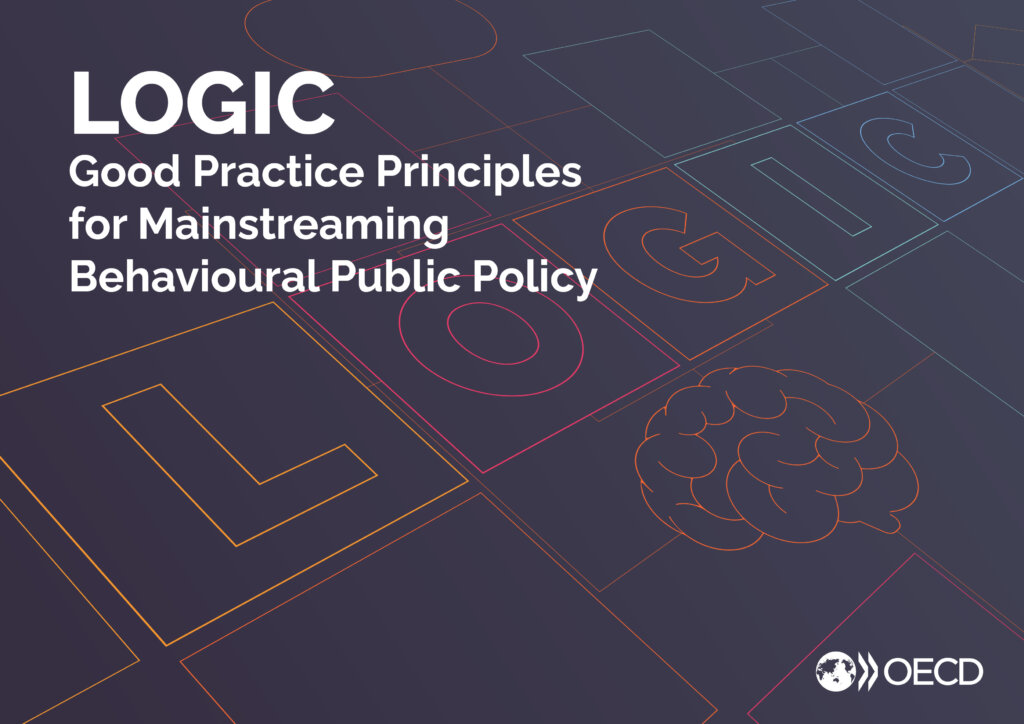LOGIC: Good Practice Principles for Mainstreaming Behavioural Public Policy

LOGIC: Good Practice Principles for Mainstreaming Behavioural Public Policy puts forward 14 good practice principles to encourage the incorporation of behavioural perspectives into policymaking. Whereas traditional policy analysis methods make assumptions about people and their behaviour which may not be true in practice, a behavioural lens equips policymakers with a more realistic understanding of how people interact with each other and institutions.
The report also includes global country examples of activities that governments are pursuing in support of these good practice principles, a set of questions to provide a starting point for analysis of behavioural science maturity levels, as well as comprehensive case studies of the behavioural science mainstreaming journeys of key jurisdictions from Argentina and Australia.
The principles were co-developed with members of the OECD Network of Behavioural Insights Experts in Government, are based on effective practices from policymakers and behavioural science experts, and are animated with data from multiple sources, including the Behavioural Insights Knowledge Hub and the Interactive BI Unit Map.
Behavioural science in policymaking around the world
Many, if not most, issues that governments seek to address involve human behaviour in some way. Recognising the importance of peoples‘ behaviour to policy work and its relevance at each stage of the policy cycle, governments around the world increasingly establish behavioural science teams and augment their policymaking practice with behavioural science insights and methods. While behavioural science teams vary in missions, models, and methodologies, they share the common goal of enhancing our understanding of ‘what makes people tick’ and how we might use this information for the betterment of policy and society.

A broader range of countries are setting up behavioural science functions and many countries now have multiple teams and functions set up in various government organisations throughout their public administrations.
Given the growth of the field, there is an impetus to leverage the collective knowledge of the community to identify good practices that have been effective in mainstreaming behavioural public policy to this point. By advancing on these principles, governments can continue the development of behavioural science as a tool for improving people’s lives.
Good Practice Principles
The 14 principles are categorised under five dimensions:

Leadership
The actions and words of influential leaders can play a critical role in encouraging the uptake of behavioural science evidence in policymaking. Senior leaders in government can advocate for a people-centred approach and request a robust evidence base, and managers can actively develop this mindset in their organisations.
- Principle 1: Encourage explicitly. Senior leaders request and advocate for behavioural science when relevant.
- Principle 2: Engage with leaders. Managers build and maintain senior leaders’ support for behavioural science.
Objectives
Governments can include behavioural science in their strategic plans and monitor its use over time. A formal definition of how a behavioural perspective can help a government achieve its strategic objectives can motivate and guide policymakers’ choices. A strategy for using behavioural science can apply to both public policy (involving citizens, businesses, and other stakeholders) and internal policy (the processes and mechanisms of public administration itself).
- Principle 3: Define strategy. Senior leaders and managers define how behavioural science can and should help the government deliver its strategic objectives.
- Principle 4: Monitor impact. Managers monitor the use of behavioural science evidence and its impact on government policy to enable iteration and improvement.
- Principle 5: Look internally Senior leaders and managers encourage the use of behavioural science in designing and improving internal organisational processes, rules, and incentives.
Governance
A clear accountability structure around how resources and activities are managed and organised can help a government more efficiently and effectively embed behavioural science into policymaking procedures and practices. Governments should clearly allocate the responsibilities for mainstreaming behavioural public policy and fund associated activities appropriately.
- Principle 6: Establish accountability. Senior leaders clearly allocate the responsibility for mainstreaming behavioural science and establish lines of accountability.
- Principle 7: Resource sufficiently. Senior leaders and managers mobilise sufficient resources to ensure policy advice is informed by relevant and reliable behavioural science evidence.
Integration
Partners, stakeholders, and structures can form an enabling environment for behavioural public policy that makes relevant evidence more likely to be sought, produced, and heeded. Governments can build behavioural considerations into standard policy processes and guidelines and adopt behavioural science responsibly and openly to build citizens’ trust. They can also develop processes and structures for behavioural data collection that allow them to diagnose problems and develop solutions more efficiently and effectively.
- Principle 8: Embed in processes. Managers integrate behavioural science into standard guidelines and procedures for policy development, implementation, and evaluation.
- Principle 9: Act responsibly and openly. Managers ensure behavioural science is applied responsibly, openly, and with high integrity standards to build and maintain policy makers’ and citizens’ trust.
- Principle 10: Create data infrastructure. Managers support processes and structures for data collection and analysis that make it easier to diagnose behavioural issues and evaluate policy options.
Capability
Policymakers can learn how to approach a policy problem in a people-centred, evidence-informed way, and ensure they have sustainable, ready access to behavioural science experts. Governments can also establish mechanisms to bring behavioural science evidence into the policy process in a way that is relevant and useful, and to share knowledge and practices among practitioners.
- Principle 11: Build broad literacy. Managers build policy makers’ capability to apply a behavioural science lens to their work.
- Principle 12: Access expertise. Managers develop sustainable ways for policy makers to access behavioural science expertise.
- Principle 13: Broker knowledge. Managers ensure that behavioural science evidence can be useful to inform policy making processes through quality brokerage.
- Principle 14: Share knowledge. Managers build mechanisms for dissemination and knowledge sharing, such as networks of behavioural science experts and supporters.
For more information, please contact [email protected]
To access the full report, please click here.
A highlights brochure which summarizes the main takeaways can be found in the link below:

